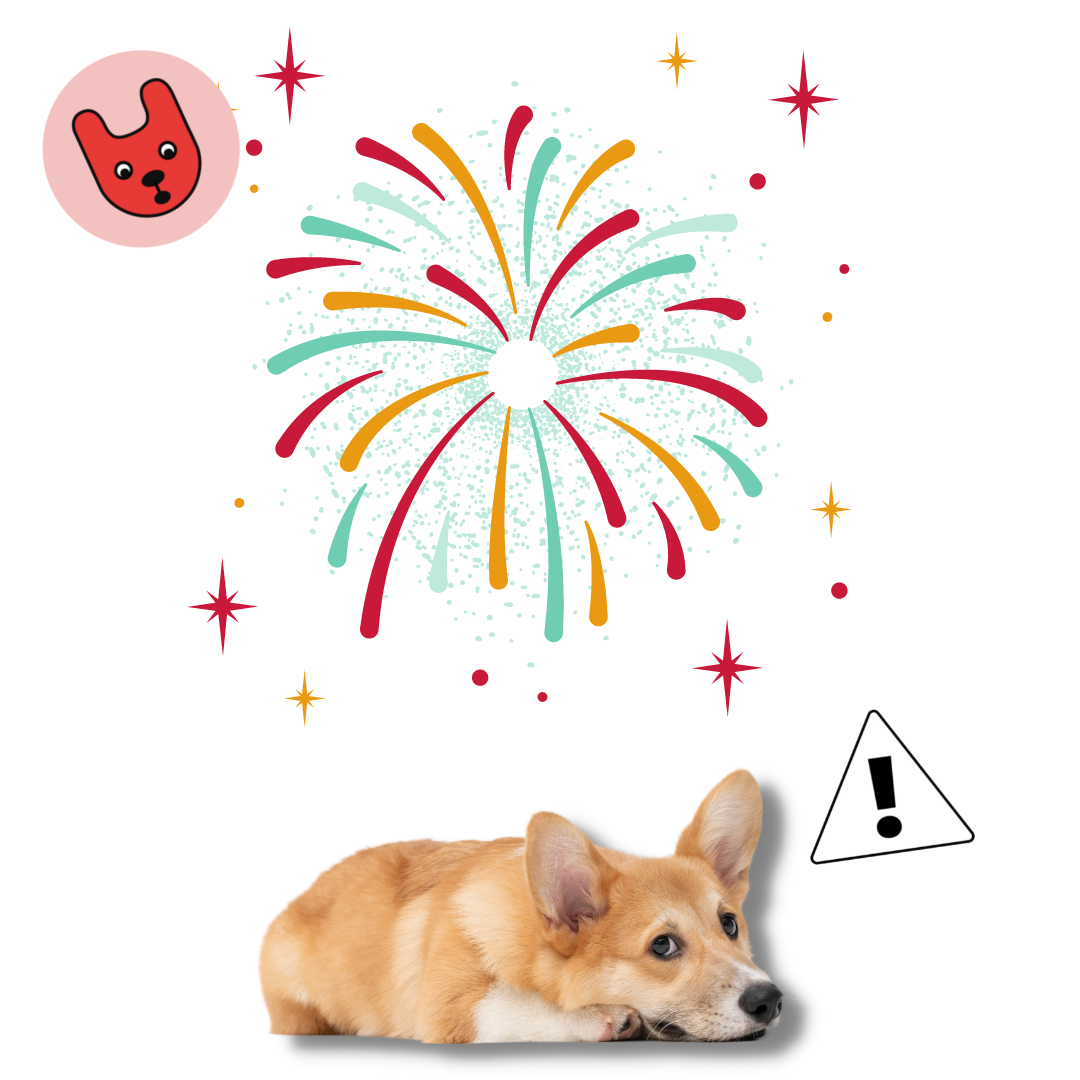Dogs & Fireworks: Top Tips from Our Vets

Fireworks night for some is a chance to get lost in the magic of bright lights exploding into the cold night’s sky, enjoying the warmth of a bonfire, and a good excuse to meet up with friends.
However, for many dog parents, it can be very worrying and stressful due to the impact that it has on their beloved pets.
Looking at it from a dog’s perspective, for no reason at all, they are exposed to a sensory overload. Lots of loud unusual noises, and consider how much more sensitive their hearing is than ours (is that the fridge opening?). Add to that the visual impact of lots of regular but random flashes of light, and it makes perfect sense why many dogs will find the whole event incredibly upsetting.
Some dogs cope really well with these situations, which could be because they are very laid back, or they have poorer hearing, or they just sleep very heavily and are able to ignore everything!
However most owners will see some sign of stress during this time - from very mild signs of being a bit needy, not able to sleep, wanting to hide, to the more extreme signs like barking, or even physical displays of distress such as digging, destroying soft furnishings, or even sometimes trying to break through doors!
It can also be nerve-racking trying to take your dog out for a walk for toiletting in the evenings. Some would even rather mess in the house rather than go outside during this alarming time of year!
So what top tips do we have to try to help our furry friends get through the fireworks season?
- Give your dog enough exercise and mental stimulation during the day so that they are tired in the evening.
- Make sure you’ve taken your dog out earlier in the day (before dusk) to allow them to pee and poo without being startled or anxious when the sights and sounds begin.
- Give your dog a carbohydrate rich meal (like white pasta or mashed potatoes) as they can result in a natural tiredness that can take the edge off a difficult time.
- Create a safe space where your dog feels secure - crates are perfect for this, but you can also use a cardboard box. This should be positioned in a quiet part of your home. Make it inviting and snuggly by providing lots of blankets and bedding.
- Close curtains and windows to reduce the noises and sounds that your dog is being exposed to.
- Play music to try to cover noises from the fireworks.
- Have an alternative activity ready for your dog to distract them from the noises of the outside world - such as a new brain game, chew toys or treats.
- Make sure that your pet is microchipped and has up to date details on their collar so that if they were to make a break for it and escape from the house, there is a better chance that they will be returned to you.
- Don’t leave your pet alone so you are able to comfort and reassure them, and potentially stop them from hurting themselves or damaging your home.
- Plug-in aerosol treatments with pheromones are available that can make dogs feel more comfortable.
If you have a young puppy, you can try to prepare them by playing videos of fireworks (starting with low volume and gradually increasing) and giving them treats to reinforce calm and relaxed behaviours. This helps to desensitise them before they are exposed to a more uncontrolled scenario.
If your dog is still struggling, or has severe signs of stress and you’re worried about them hurting themselves, speak to your vet, as there are medications which can help.
If you have any questions at all our team of vets are always happy to help. You can reach us at woof@omni.pet





